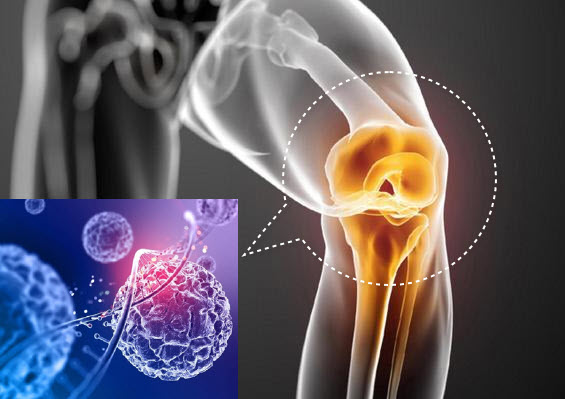What is a Stem Cell?
Stem cells are undifferentiated, pluripotent cells that can differentiate into more than 210 different tissue cells that make up the body. Because of their ability to replicate themselves and differentiate into many different cells, they have paved the way for the treatment of previously incurable and chronic diseases.
In particular, embryonic stem cells and induced pluripotent stem cells have the ability to differentiate into all kinds of cells, hence the name "pluripotent."
Stem cells have recently begun to gain traction in the field of regenerative medicine because they play an important role in tissue regeneration and repair of damaged organs.
For example, stem cells are being used to treat a variety of conditions, including heart disease, brain disease, spinal cord injury, diabetes, and more. There is also a lot of research into artificial tissues to replace damaged tissues or organs. For example, methods are currently being developed to implant artificially created skin, cartilage, and more.
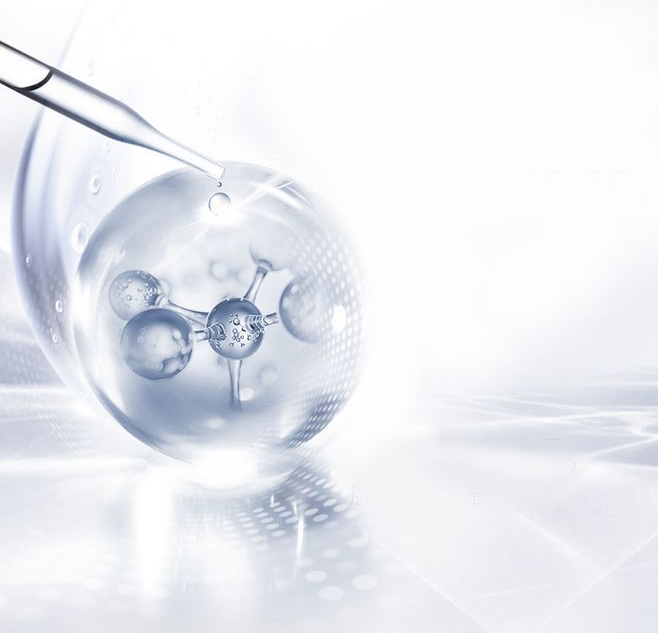
Differentiation of Stem Cells
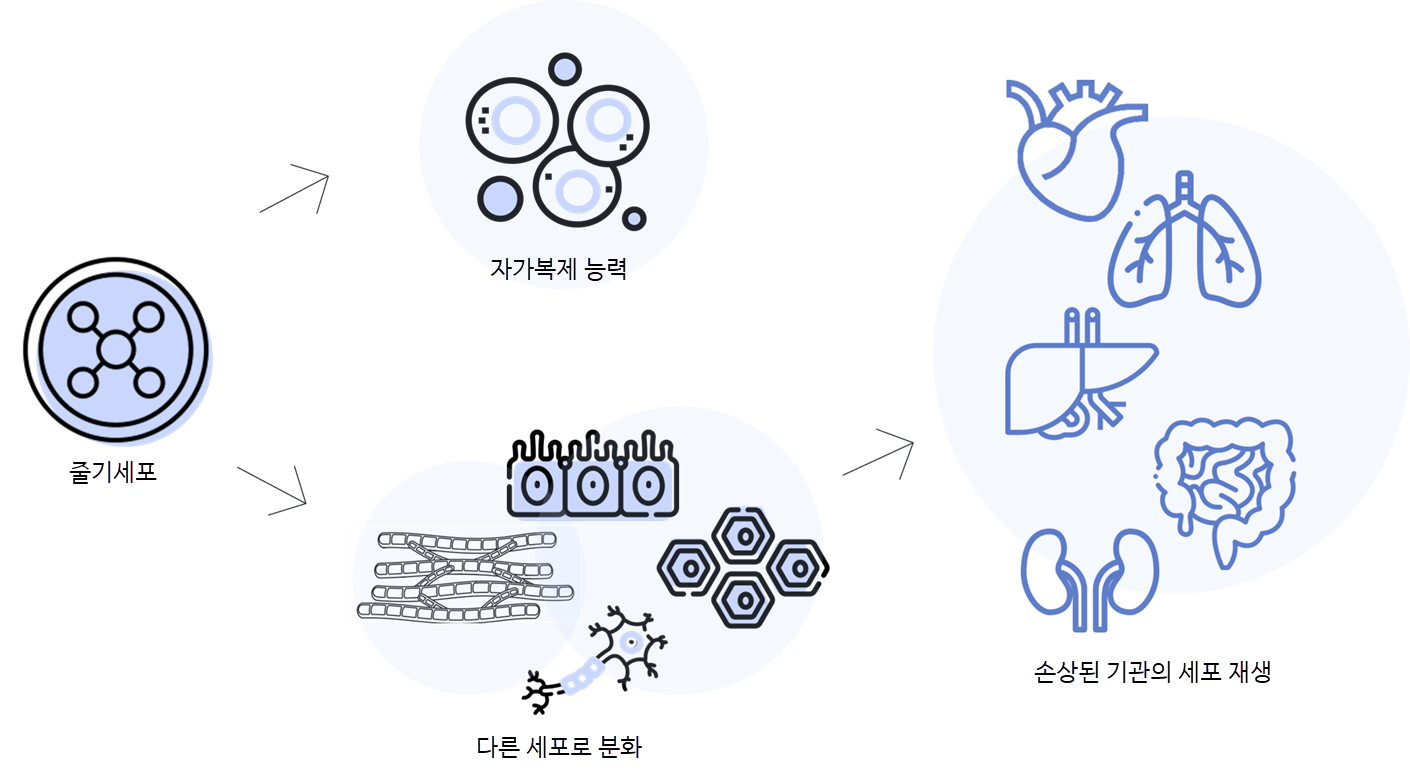
Stem cell differentiation is the process by which stem cells turn into specific tissue cells, and which cells they become is determined by a variety of internal and external signals.
Intrinsic signals are processes that regulate gene expression, while extrinsic signals are stimuli from other cells or growth factors. As stem cells differentiate, they gradually turn into mature cells with specific functions.
For example, stem cells that differentiate into nerve cells will have neurotransmission capabilities in the brain.
Types of stem cells
Stem cells are broadly divided into embryonic stem cells and adult stem cells. Embryonic stem cells are also known as pluripotent cells because they can differentiate into any tissue in the human body, but are generally prohibited due to ethical concerns. Adult stem cells, on the other hand, are harvested from already grown body tissues and can be differentiated to match the characteristics of each organ.
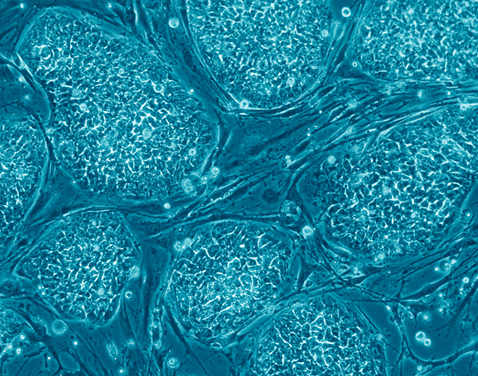
Embryonic Stem Cells
An embryonic stem cell is a cell that originates from a fertilized egg and has the ability to differentiate into almost any type of cell in the human body. (For example, embryonic stem cells can differentiate into heart cells, nerve cells, skin cells, and more.)
These properties allow embryonic stem cells to differentiate into the desired tissue and be used to regenerate that tissue when it is damaged, but research is hampered by ethical concerns about the destruction of embryos in the process of harvesting cells from them.
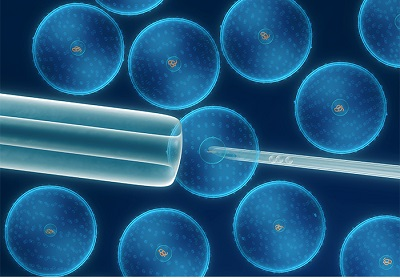
Adult Stem Cells
Adult stem cells are cells that have already differentiated to perform a specific function and can be easily and safely harvested from fat, bone marrow, placenta, umbilical cord, blood, etc.
They are more limited than embryonic stem cells because they can only differentiate into specific tissues or cells. For example, stem cells derived from bone marrow differentiate into blood cells, and stem cells derived from muscle differentiate into muscle cells. And because adult stem cells can be obtained without the destruction of embryos, there is no ethical controversy.
Benefits of Stem Cell Treatment
Key effects of stem cells, which play an important role in tissue regeneration and repairing damaged cells, include
Stem Cell Therapy - Orthopedics
In 2023, the American Academy of Orthopedic Surgeons (AAOS) presented stem cells as the standard for treating most arthritis, ligament injuries, and muscle injuries. Stem cell is the last treatment option before surgery, and SH clinic can solve various orthopedic problems through accurate diagnosis.
① Stem cell treatment for knee osteoarthritis has been designated as a new medical technology, which means that it can make medical indemnity insurance available. This is a great way to relieve arthritis before it gets to the point where you need an artificial joint.
② Stem cell treatment can be a good option for muscle tendinitis that does not heal for a long time, such as frozen shoulder, tennis elbow, and plantar fasciitis.
③ It is also very effective in spinal diseases such as chronic back pain, disc pain, and cervical pain that do not get better even with various treatments.
④ The American Academy of Orthopedic Surgery (AAOS) reported that using stem cells at the surgical site for post-surgical recovery improves the effectiveness of the surgery and makes the recovery period faster. Therefore, stem cell therapy after surgery can also show good results for patients.
